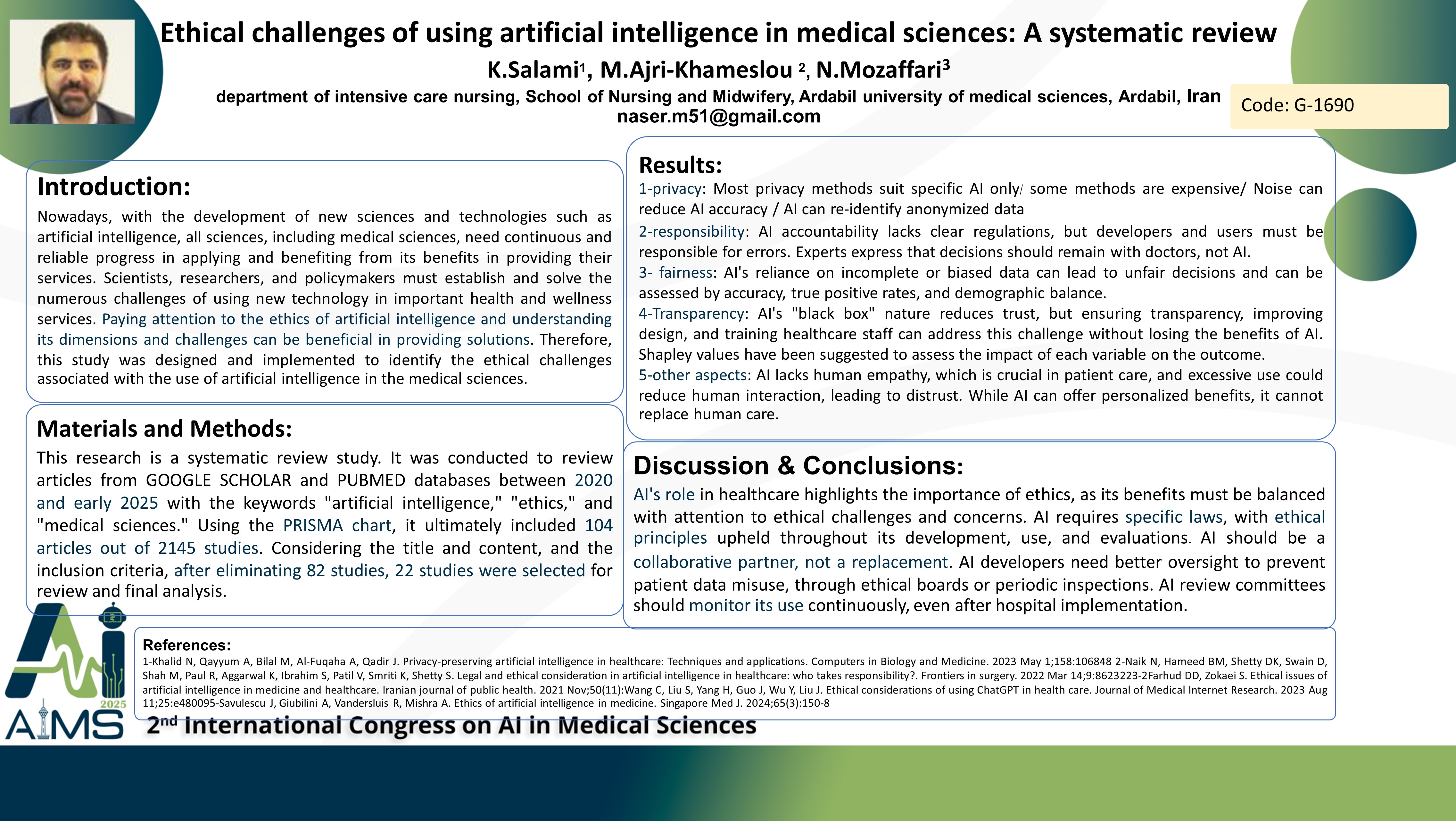چالش های اخلاقی استفاده از هوش مصنوعی در علوم پزشکی: یک مطالعه مروری سیستماتیک
کد: G-1690
نویسندگان: Kowsar Salami ℗, Mehdi Ajri Khameslou, Naser Mozaffari *
زمان بندی: زمان بندی نشده!
برچسب: سیاست گذاری، قانون گذاری و مدیریت سلامت در حوزه هوش مصنوعی
دانلود: دانلود پوستر
خلاصه مقاله:
خلاصه مقاله
Nowadays, with the development of new sciences and technologies such as artificial intelligence, all sciences, including medical sciences, need continuous and reliable progress in applying and benefiting from its benefits in providing their services. Scientists, researchers, and policymakers must establish and solve the numerous challenges of using new technology in important health and wellness services. Paying attention to the ethics of artificial intelligence and understanding its dimensions and challenges can be beneficial in providing solutions. Therefore, this study was designed and implemented with the aim of determining the ethical challenges of using artificial intelligence in medical sciences. Method: This research is a systematic review study. It was conducted to review articles from GOOGLE SCHOLAR and PUBMED databases between 2020 and early 2025 with the keywords "artificial intelligence," "ethics," and "medical sciences." Using the PRISMA chart, it ultimately included 104 articles out of 2145 studies. Considering the title and content, and the inclusion criteria, after eliminating 82 studies, 22 studies were selected for review and final analysis. Results: The study revealed that privacy, transparency, fairness, and accountability are significant challenges. Other challenges were also categorized as other challenges. Issues such as the need to inform patients about the use of artificial intelligence in the treatment process and its possible advantages and disadvantages to maintaining informed consent indicators, continuous review of private companies to prevent the sale of data to insurance companies or for commercial purposes, and the need for doctors to make the final decision and avoid inequality Were considered. Overall, this study showed that there are fundamental challenges in the ethical use of AI that require serious attention and the development of ethical and practical regulations in the field of AI and the adoption of precise and strict regulatory laws that take into account cultural and national differences, justice, transparency, privacy, and accountability. Establishing regulatory committees consisting of representatives of all stakeholder groups to review the scientific and ethical functioning of AI at all stages of development and use of AI is essential.
کلمات کلیدی
Artificial Intelligence, Medicine, Ethics, Legislation
